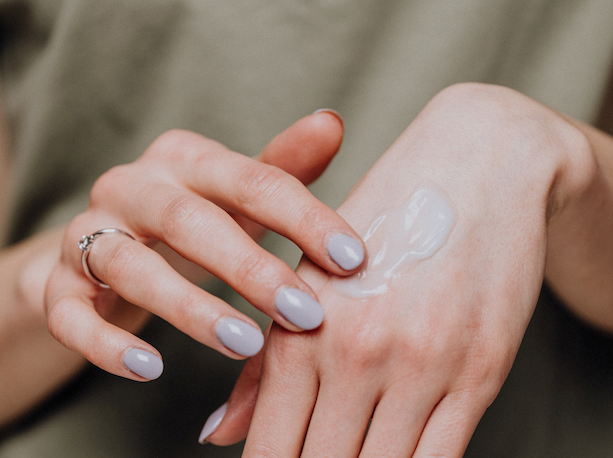Are you looking to get rid of scars or stretch marks? You've heard of using aloe vera cream or lavender oil but want a natural remedy recommended by dermatologists. But more than that, you want a scar cream that works. While it may not be possible to get rid of scars entirely (depends on severity and age), one incredible method to make scars fade away is vitamin E.
The Power of Vitamin E Cream
Vitamin E is a fat-soluble vitamin present in many foods and vegetables and essential for critical bodily processes, and one of them is improving the appearance of skin. Healthy skin comes from many different factors (age to skincare regimen), but it also comes down to the cells' nutrients.
Vitamin E is a natural antioxidant that inspires healthy cell growth. Antioxidants help fight against free radicals that harm the body, mind, and soul. According to dermatologists, vitamin E cream is a safe and effective way to help unsightly scars, dark spots, and wounds.
Vitamin E is easy to apply as a home remedy or used as an in-office treatment. Check out all the benefits of Vitamin E below.
How to Use Vitamin E Cream
All it takes is a quick treatment by rubbing gently in a circular motion on the affected skin. Vitamin E comes in creams, gels, or capsules. If you use a capsule, you can break it open to reveal the oil and dab it on the skin. But that can get a little messy, so an infused vitamin E cream or silicone gel may be the best option.
Board-certified dermatologists recommend applying vitamin E when the skin is completely clean and dry for best results. In the morning, after a shower is the ideal time, and at night as part of your evening bedtime ritual.
Other Home Remedies for Scar Removal
You can also combine with other ingredients, such as olive oil or coconut oil, for increased scar removal, alongside vitamin E. Some home remedies include the following elements to help make scars fade away, including:
- olive oil
- coconut oil
- apple cider vinegar
- aloe vera
- lavender oil
- onion extract
- cocoa butter
The effectiveness of fading scarring depends on the type of scar, severity, and age of the scar. Your skin is the biggest organ in the body, and the kind of scar treatment depends on the type of wound.
Type of Scars
Your skin protects you against the world, but it also can be susceptible and scar easily. But no scar is equal, and you may have one or more of the following scars that could benefit from vitamin E.
Hypertrophic scars
These kinds of scars come from deposits of excess collagen that result in a raised spot. Hypertrophic scars can come with blood vessels and nerves and form at the locations of cuts, burns, pimples, and body piercings.
Keloid Scars
These are similar to hypertrophic scars, but the skin can be even further raised and discolored. Usually, they look red, pink, or darker than the skin surrounding them. Keloid scars can be more comprehensive than the original damaged skin.
Acne Scars
Acne lesions or scars come from oily and inflamed skin, and a breakout damages the skin cells, leaving scars behind. Some of these scars are keloid scars or hypertrophic scars. Facial scars from acne most commonly occur during puberty, but adults can experience scarring from breakouts as well.
Atrophic Scars
If you've ever had a terrible case of acne or chickenpox, you may have an atrophic scar. Atrophic scars form below the healed section of the skin affected by acne or chickenpox and look indented. The skin is unable to regenerate.
Contracture Scars
Sometimes called burn scars, contracture scars come from the skin being burned. The scar tightens and makes it hard for your skin to stretch or move, resulting in tightening and discomfort. The severity of the contracture scarring determines the hurt and pain.
What Vitamin E Can Do For Scarring
Reduces Inflammation
One reason for the appearance of scars is inflammation. Swollen and tight skin is not only uncomfortable but can make the person feel embarrassed or unattractive. Vitamin E helps soothe skin and reduces inflammation. Medical reviewers have also found it helps with postinflammatory hyperpigmentation.
Home Remedies For Acne
Zits or pimples for some come and go, but for others, acne is a severe problem and leaves terrible scarring. It can make you want plastic surgery or consider laser treatment. But the healing qualities of vitamin E may reduce the scarring and help heal wounds from acne.
Improves Surgical Scars
Some studies show that vitamin E reduces the appearance of scars. It helps a wound to heal after surgery. Women who have cesareans have scars on their lower abdomen. While this scar may never completely go away, applying vitamin E reduces the raised skin and overall scar appearance. For cesarean scars, apply the vitamin E twice daily as soon as your skin heals for the surgery.
It may also help minimize the scarring look from stretch marks. Stretch marks can happen from gaining and losing weight or when you're pregnant. You can mitigate scarring with vitamin E.
Improves Pigmented Scars
Suppose you have dark spots or pigmented scars. In that case, you can help reduce the discoloring by applying vitamin E. Vitamin E helps with skin cells' regenerations and provides collagen production to improve skin tone.
Keeps Skin Hydrated
Dry, flaky skin can make any kind of scarring more evident and painful. Scarred skin can be uncomfortable to touch and itchy. Adding soothing remedy of vitamin E and cocoa butter adds much-needed moisture back to the skin and recuses the visible appearance of scarring.
Start the Healing Process
Scar treatment is a journey that's well worth it. Trying home remedies, such as vitamin E, maybe just what you need for wounds to heal. Scarred tissue is not something you have to live with, and living with proper skin health is possible. Try this incredible method to make scars fade away— invest in vitamin E cream today!



